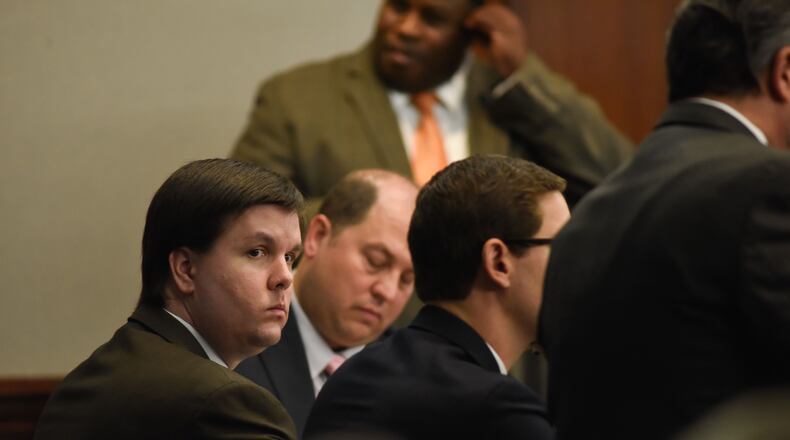UPDATE: Justin Ross Harris is scheduled to be sentenced on Dec. 5 in the murder of his son 22-month-old Cooper. Harris' now ex-wife, Leanna Taylor, issued a stinging rebuke on Facebook following the jury's verdict of guilty on all 8 counts. Taylor said she still firmly believes Harris did not intentionally leave their son in a hot car to die on June 18, 2014, but that it was a tragic accident. Harris faces up to life in prison without parol.
In his closing statement, the lead defense attorney for Ross Harris accused the state of basing its case on little more than "demeanor and dirt."
That turned out to be prophetic on Monday, when Harris was convicted on all eight counts in the death of his son, Cooper. Harris's unusual behavior that night with police made investigators suspicious. Later revelations about Harris's bizarre sexual exploits just reinforced what they already believed.
On the first full day of deliberations, jurors focused on two surveillance videos from Cobb County police in which Harris’s conduct – at times calm and collected, at times panicked and emotional – was front and center.
Marietta criminal defense attorney Ashleigh Merchant, who has closely followed the trial, said the defendant’s response to his son’s death turned out to be a huge factor.
“I hate that, because it’s not evidence of anything,” Merchant said. “But they expected him to act a certain way. And there’s no explanation why he acted the way he did.”
The surveillance footage also showed Harris talking about the events leading up to Cooper’s death. Jurors followed along with a written transcript, indicating they were just as interested in what he said as how he behaved.
And several of them scribbled notes as they watched Harris describe the events on the day Cooper died to Det. Phil Stoddard, the lead investigator. Harris’s account of that day left out one important detail: after telling the detective he had gone to lunch with two co-workers, Harris paused, stammered and then skipped over his purchase of light bulbs, which he placed in his Hyundai Tucson shortly after. By the time Harris returned to his car with the light bulbs, Cooper had already been locked inside it for three hours.
Jurors told prosecutor Chuck Boring on Monday that they noticed something that even the state hadn’t seen: Harris opened the car door with his left hand and then threw the light bulbs in with the same hand. The significance of that wasn’t immediately clear, but jurors apparently found it suspicious.
Even if Harris had been acquitted on malice murder, convictions on the felony murder counts, both tied to cruelty to children, were inevitable, said Dunwoody criminal defense lawyer Esther Panitch, who was in Brunswick for closing arguments.
Felony murder occurs when someone commits a certain kind of felony and someone else dies during the course of it, even if the death is accidental. The murder charge is tied to an “underlying felony,” such as rape, armed robbery, kidnapping or arson. In this case, the underlying felonies were cruelty to children in the first and second degrees.
Panitch said Harris’s negligence was obvious to jurors.
“His own sexting caused him to be distracted and forget his kid,” she said.
The prosecution shoveled on the dirt, giving the jurors reasons to want to convict Harris, according to Panitch.
The most persuasive evidence, Panitch and Merchant agreed, was likely the proximity of Harris to Cooper’s rear-facing car seat. Prosecutors said only three inches separated father and son..
“(Harris) was portrayed as such a careless and negligent person,” Merchant said. “If they hate him, they’re going to find a way to convict him.”
Jurors did just that, despite a vigorous defense. But a key component of the defense strategy — that Cobb police rushed to judgment — was defused by Cobb Superior Court Judge Mary Staley Clark’s rulings, Merchant said.
Discrepancies in Stoddard’s testimony, such as whether Harris looked into his car when dropping off the light bulbs at lunchtime, didn’t seem to have much impact on the jurors, she said.
“That’s going to be a significant issue on appeal,” Merchant said.
About the Author
The Latest
Featured



